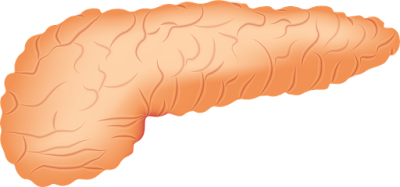Treatment with aloe vera
Healing properties of aloe vera
Aloe vera is a perennial housing. It is an evergreen succulent from the lily family. This type includes 180 species, which are present on all continents. Aloe vera is known in Europe for 1700 years. In homes blooms very rarely and is a plant that does not tolerate frost.
As a medicinal raw material is used juice from fresh leaves of aloe. Three years of leaves of this plant are used for preparing aqueous extracts, which contain so-called. biogenic stimulators.
Remember! If you want to use aloe vera for medicinal purposes, is not it in the water the summer for two weeks, and in the winter for at least a month.
Indications
Aloe for internal use: deficiencies menstrual cortex inflammation, bronchial asthma, sub-acute and chronic rhinitis, colorectal cancer, inflammatory conditions and corneal and retinal degeneration, persistent headache, neuralgia, nervous exhaustion, atrophy of the optic nerve, corneal clouding, inflammation of the gastrointestinal tract , peptic ulcer disease, atrophic gastritis, ulceration of the rectum and colon, constipation (when the peristaltic movements of the colon disappear when there is no pressure on the anal sphincter in the elderly and obese subjects).Aloe for the use of external scars, frostbite, skin damage, ulceration, rhinitis, sinusitis, nasal side (instillation and washing), ulcers, cracks in the skin, allergic rashes and purulent, poorly healing wounds and burns thermal and X-rays, sting insects, stomatitis, aphthae, paradentitis, vulvitis (wraps) and vaginal (tampo).
Lum pulp aqueous extract from fresh leaves of aloe operate a bio stimulant: strengthen the body's defense mechanisms and activate enzymes fluids, especially those containing trace elements. With its feature improves the efficiency of the biological diseased tissues and metabolism throughout the body, and improves its balance (homeostasis). Biological stimulators are rapidly absorbed and reach the blood to various organs. There are activated in the acidic environment of the stomach. They are not destroyed by enzymes, and therefore tissue extracts of aloe vera can be administered orally or parenterally-externally to the skin and mucous membranes.
Remember! It is recommended to use an extract or pulp from the fresh leaves of aloe vera in inflammation of the gastrointestinal tract, peptic ulcer disease, atrophic rhinitis in the gastric mucosa, with ulceration of the colon and rectum.Aloe in the form of injections administered biostyminy during convalescence after surgery and long-term illnesses, those who are elderly with loss of strength, as well as the increased susceptibility to infectious diseases and the nervous exhaustion.
The dried juice of aloe vera is used in medicine for thousands of years. Aloe syrup with iron ( Askofer ) is a hematopoietic agent.
Contraindications for use: uterine haemorrhage, menstruation, uterine disorders, various hemorrhages, enlarged prostate, cystitis, dysentery, colitis, inflammation of the bowels, incomplete contraction of the heart, age of children, acute or subacute appendicitis and glomerulonephritis, advanced pregnancy (7 months), menstrual period, immediately after gastrointestinal surgery, hemorrhoids, severe cardiac failure and blood vessels, high blood pressure, bleeding .
The side effects of aloe vera: aloe vera preparations in larger doses can be dangerous for pregnant women (abortion , premature birth), and in the case of congestion of the colon and pelvic. Large doses cause general weakness, slow heart rate, low body temperature (hypothermia).
Remember! 8 g of powder causes death. Aloe antagonists are drugs and acids.Incompatibility produce tannins, iron, iodine, menthol, thymol, phenol. Therefore, do not use these measures in combination with aloe vera.
How to use aloe vera?
The powder of the dried leaves of aloe: 1 time evening wafer (0.1-0.2 g) with half a glass of water as a laxative, 1 time 20-30 mg 2-3 times a day before meals as stomachicum (stomach) stimulant appetite.Aloe Vera: 1/2-1 teaspoon to half a glass of water as a laxative, 5-10 drops on the stomach.
The juice of fresh leaves of aloe: 1 teaspoon orally 2-3 times a day half an hour before meals as a gastric and antipyretic.
Externally, aloe vera can be used as: drenches, wraps in various dermatoses, as an ointment for burns, thermal and X-rays.
An infusion of the dried leaves of aloe: teaspoon per cup of boiling water. A good remedy for stomach, liver and digestion.
Alcohol tincture the fresh leaf of aloe vera is a good healing agent against abscesses and festering wounds.
Preparations of aloe should be sealed in a dark, sealed and away from light, even electric.


I've learn some just right stuff here. Certainly
ReplyDeleteprice bookmarking for revisiting. I surprise how much effort you place to make this type of great
informative site.